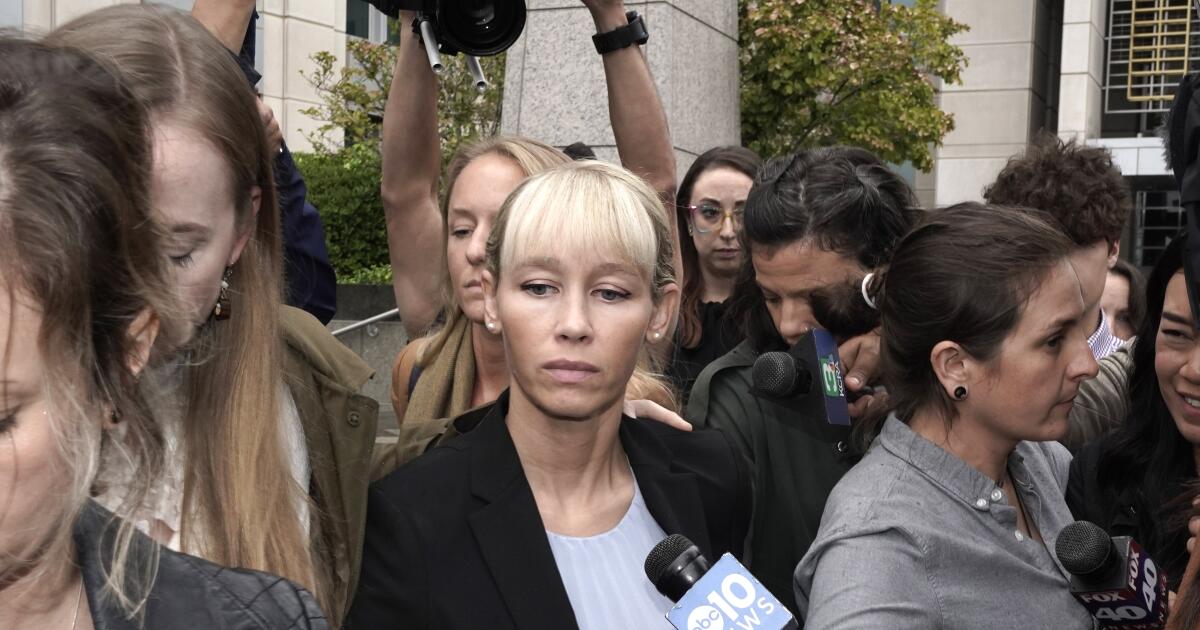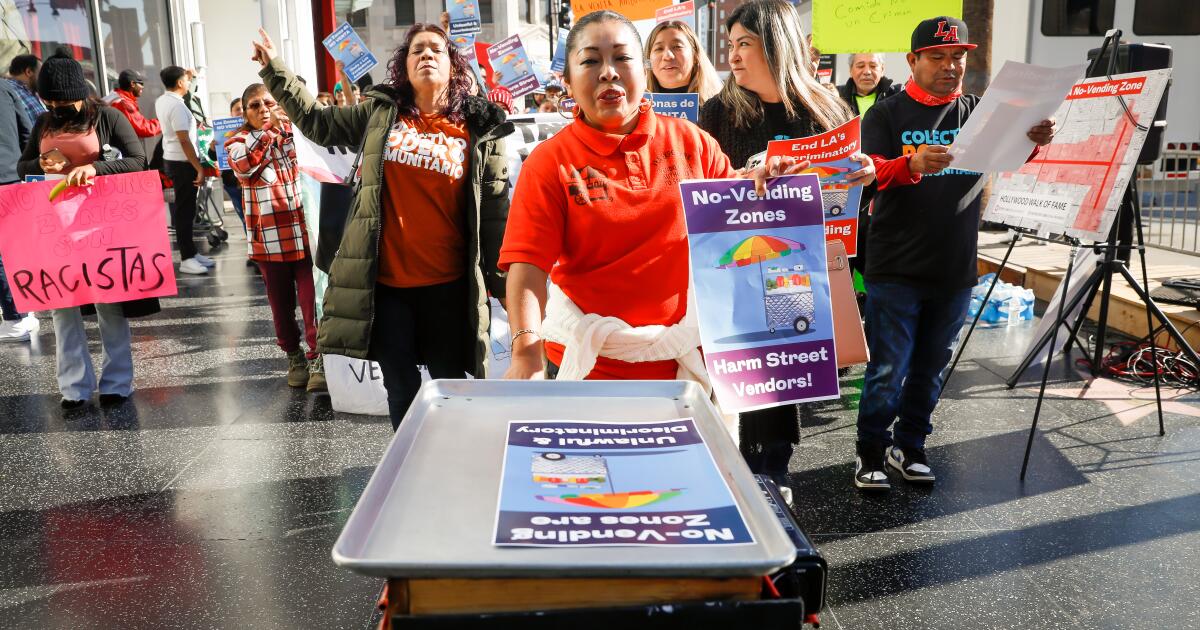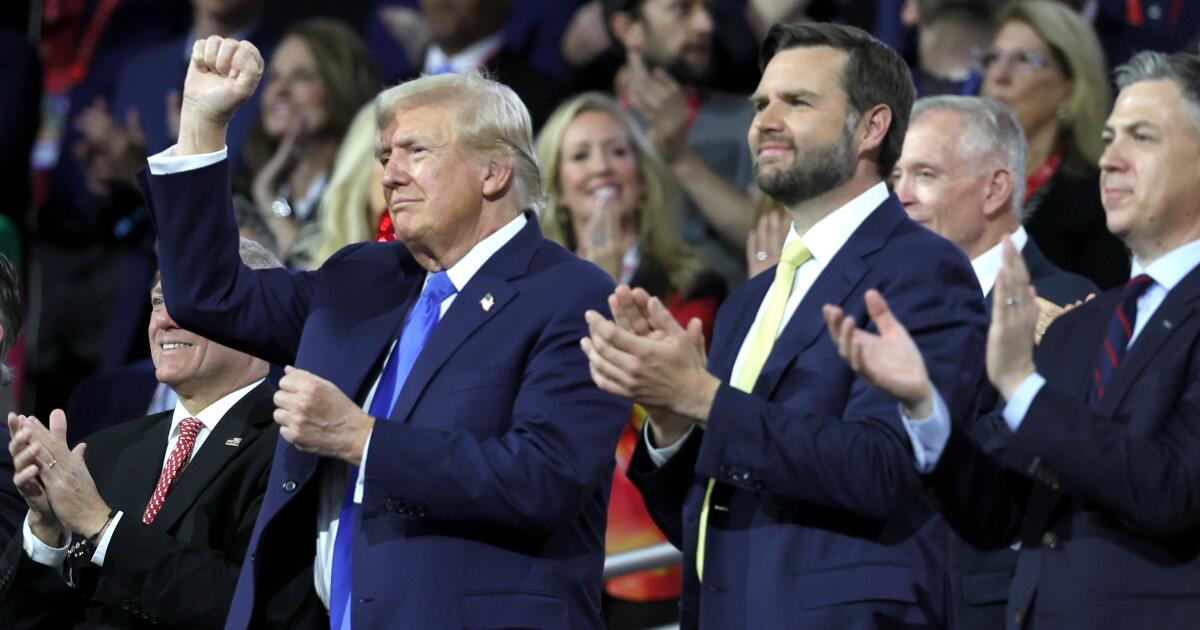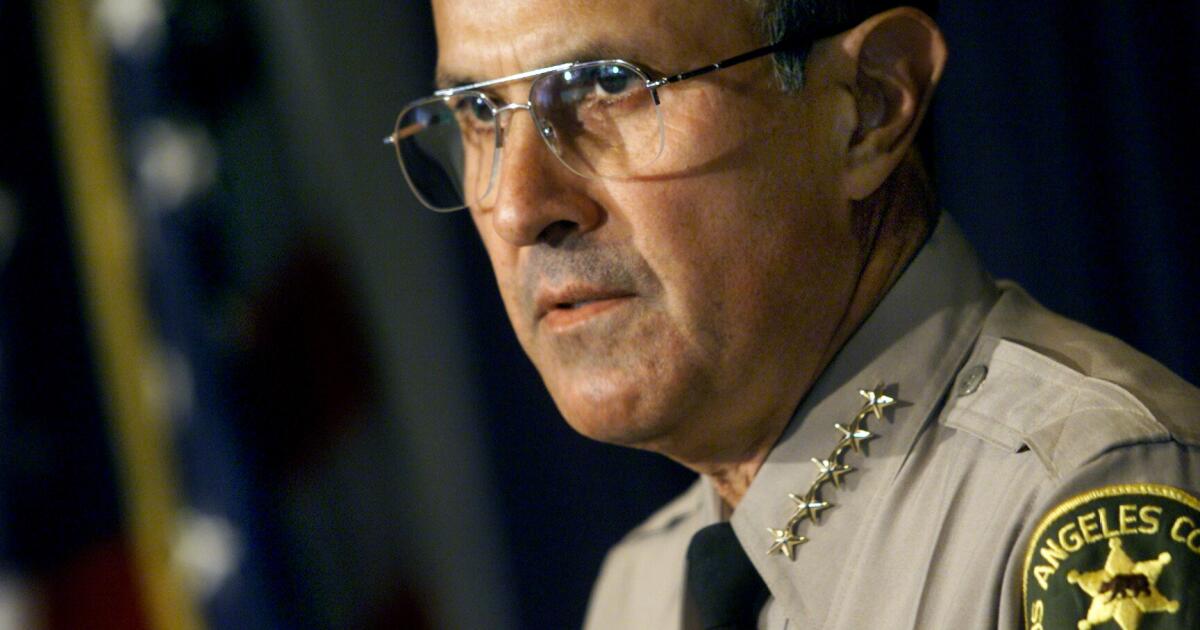World News
Sherri Papini owes $300,000 in kidnap hoax; prosecutors aim to collect

Sherri Papini, the woman who fabricated her own elaborate kidnapping and went to prison for mail fraud and lying to federal agents, still owes more than $300,000 in restitution, federal officials say.
Papini, 41, was ordered to pay $309,902 in restitution when she was sentenced to federal prison in September 2022, nearly six years after she staged her own kidnapping and kicked off a frantic search that made national headlines.
But as of March 22, federal officials say, Papini still owes nearly all of that money.
The U.S. Attorney’s Office for the Eastern District of California filed an application for writ of garnishment worth $340,221.23 against Papini, which includes a 10% litigation surcharge.
Also targeted in the writ is the law firm representing Papini in her divorce. The filing claims Papini has a “substantial nonexempt interest in property” that is in “the possession, custody, or control of” the law firm.
Sacramento-based attorney William Portanova, who represented Papini in her federal case, acknowledged during her September 2022 sentencing hearing that she was unlikely to be able to afford the payments.
“Sherri Papini was ordered to make full restitution as part of her case resolution before U.S. District Court Judge William B. Shubb, and Ms. Papini continues to honor her promise to do so,” Portanova wrote in an emailed statement. “The Court and the Government are fully aware of Ms. Papini’s current financial condition. Nothing has changed.”
Papini went missing from her Redding, Calif., home for 22 days in 2016, setting off search parties across rural Shasta County and desperate pleas for help by her then-husband, Keith Papini.
Three weeks later, Papini reappeared on the side of a highway in Yolo County, bruised and emaciated, with her long blond hair sheared short and right shoulder branded.
Papini initially alleged she was kidnapped while out for a run by two Latinas at gunpoint and that they held her captive before letting her go.
Instead, Papini had gone south to Costa Mesa with an ex-boyfriend, holing up with him for several weeks while her family and community back home searched for her.
Papini maintained her story for years, even when the investigation into her kidnapping led law enforcement back to the ex-boyfriend. It all started to crumble in August 2020, when Papini was confronted by investigators in an interview and was warned that it was a crime to lie to federal officers.
Papini stuck with her story for another year and a half before federal authorities arrested the “super mom” in March 2022 and charged her with mail fraud and lying to authorities.
The ex-boyfriend had told investigators that Papini had injured herself and cut her own hair, and that he had helped her brand her shoulder with a wood-burning tool. After she said she missed home and her family, he drove her back up to the Redding area; she reappeared in Woodland, roughly 150 miles south, on Thanksgiving.
Papini pleaded guilty in April 2022 and was later sentenced to 18 months in prison and ordered to pay restitution “for losses incurred by the California Victim Compensation Board, the Social Security Administration, the Shasta County Sheriff’s Office, and the Federal Bureau of Investigation,” according to the U.S. attorney’s office.
Papini had received $30,000 from the state’s victim compensation fund, which is money set aside for victims of crime and their families, and used it in part to pay for therapy sessions and window blinds. She was released from federal prison to community confinement six months early in August 2023.
“I’m so sorry to the many people who suffered because of me,” Papini said in court when she was sentenced. “I am guilty, your honor. I am guilty of lying, guilty of dishonor.”
World News
France travel disruption expected to last for days

French rail company SNCF has warned that disruption from Friday’s sabotage against the country’s train network could last until the end of the weekend and affect hundreds of thousands more passengers.
Coordinated arson attacks on three lines of the high-speed TGV network on Friday caused chaos for travellers, hours before the opening ceremony for the Paris Olympics. A fourth attack was thwarted by rail workers.
Prime Minister Gabriel Attal described the attacks as “acts of sabotage”.
About a quarter of international Eurostar trains were also cancelled, with UK Prime Minister Keir Starmer among those affected.
In a statement issued on Friday evening, SNCF said traffic “would improve” on affected lines on Saturday thanks to the work of thousands of rail workers.
It said:
- On the eastern line, trains would run normally from 06:00 (05:00 BST) on Saturday
- On the northern line, 80% of trains would be running, with delays of 1-2 hours
- On the south-western line, 60% of trains would be running, with delays of 1-2 hours
The company added that customers whose trains are delayed or cancelled will be contacted by email or text message.
Eurostar said it expected about a fifth of services over the weekend would be cancelled, while all trains would face delays of around 1.5 hours. Eurostar services use the northern high-speed line.
SNCF said surveillance of the rail network had been strengthened “on land and in the air,” using 1,000 workers and 50 drones.
Junior Transport Minister Patrice Vergriete said around 250,000 people had been affected on Friday, while up to 800,000 could face delays and cancellations by Monday.
He added that disrupting holiday travel, rather than Friday’s Olympic opening ceremony, was the most likely aim of the saboteurs.
“There is not necessarily a link” with the Olympics, he said in an interview.
Friday 26 July traditionally marks the start of the grand départ (big getaway) for many French holidaymakers heading out of the cities.
No group has yet claimed that it was behind the attacks. A source linked to the investigation told the AFP news agency that the operation was “well prepared” and organised by “a single structure”.
Mr Attal said security forces were searching for those responsible.
At around 04:00 on Friday, saboteurs cut and set on fire specialised fibre optic cables essential for the safe functioning of the rail network, government officials said.
One site was at Courtalain, 150km (93 miles) south-west of Paris. A picture posted online purportedly showed burnt-out cables in a shallow gulley with its protective SNCF paving stones discarded.
The SNCF spoke of a “massive, large-scale attack aimed at paralysing” its services, not just at Courtalain but at Pagny-sur-Moselle, a village outside the eastern city of Metz and Croisilles, not far from the northern city of Arras.
Another attempted attack in Vergigny, south-east of Paris, was foiled by SNCF workers who were carrying out maintenance on site in the early hours of Friday.
Prosecutors have opened an investigation into attacks on “the fundamental interests of the nation”.
World News
‘Firenado’ spotted above explosive Park fire near Chico

As the state’s largest wildfire of the year was doubling in size Thursday evening, explosive flames spun up into the atmosphere, swirling in a way that can only be described as tornado-like — a real life example of the firenado phenomenon.
Video of the massive fire whirl was captured by AlertCalifornia wildfire cameras, displaying the extreme fire behavior that is driving the massive and fast-moving Park fire across Butte and Tahoma counties.
The blaze has grown past 178,000 acres as of Friday afternoon, forcing thousands of evacuations and burning more than 100 buildings. Officials say the fire started Wednesday in Chico due to an act of arson.
“At this point, the fire is kind of creating its own weather, and that can be pretty unpredictable,” said Courtney Carpenter, a meteorologist with the National Weather Service in Sacramento. “Really big, explosive wildfires can create thunderstorms. They can make whirling fire plumes that can mimic tornadoes.”
Meteorologists tracked those massive, rotating smoke plumes on the radar Thursday night, Carpenter said, a characteristic of “explosive fire growth.”
She said the wildfire also generated thunderstorm clouds, but didn’t quite trigger lightning, which some particularly unstable fires have created before.
Watching the fire produce massive smoke rotations — and maybe even several vorteces — showed off the blaze’s rare and powerful nature, said Daniel Swain, a climate scientist at UCLA, on his YouTube channel. He said the Park fire had “super-cell thunderstorm-like characteristics.”
There is growing recognition that extreme wildfires can produce other dangerous phenomena that are not directly related to the flames alone, Swain said.
It’s not unusual to see fires modify their environment by causing localized wind currents, but large fires such as the Park fire can even start to “generate their own Mesoscale weather systems that look a lot like severe thunderstorms,” he said.
He added that new research is also finding that climate change is increasing the magnitude and frequency of such behavior, as well as bringing it to new regions.
“There is evidence that these large and potentially dangerous pyro-cumulonimbus events are increasing in a warming climate as fire intensity increases,” he said.
Carpenter said the weather service doesn’t issue tornado warnings when fire whirls develop because residents in the area should already be evacuated. More than 4,000 people have been issued evacuation orders from communities in and around northeast Chico and in parts of southern Tehama County.
“We urge people to follow the local orders from local officials,” Carpenter said. “Keep an eye on things and be ready to go if you live in the vicinity of the fire.”
World News
Donald Trump Seen in Public Without Ear Bandage
Donald Trump ditched his ear bandage for his meeting with Israeli Prime Minister Benjamin Netanyahu on Friday. The former president’s right ear returned to public life after being injured during the assassination attempt on the former president on July 13.
The former president’s large bandage became an impromptu fashion statement during the Republican National Convention with some attendees donning DIY wound dressings. Following the convention, Trump swapped out his bulky white gauze for a thin nude bandage.
Photos from Trump’s sit down with Netanyahu appear to show the former president’s ear intact without major scabbing or scarring. In one image, the former president points out the site of injury to the Israeli prime minister.
According to former White House physician Ronny Jackson, a bullet took the top of Trump’s ear off. On Wednesday, however, FBI Director Christopher Wray said that investigators did not know if the former president was grazed by a bullet or shrapnel during the shooting.
Jackson slammed the FBI Director in a letter posted on Truth Social in which he doubled down on his claim that Trump was struck by a bullet and said Wray was “wrong and inappropriate to suggest anything else.”
The former president’s campaign spokesperson also responded to Wray’s comments, calling his sworn testimony “conspiracy bullshit.”
Get the Daily Beast’s biggest scoops and scandals delivered right to your inbox. Sign up now.
Stay informed and gain unlimited access to the Daily Beast’s unmatched reporting. Subscribe now.
-

 African History5 years ago
African History5 years agoA Closer Look: Afro-Mexicans 🇲🇽
-

 African History6 months ago
African History6 months agoBlack History Facts I had to Learn on My Own pt.6 📜
-

 African History5 years ago
African History5 years agoA Closer Look: Afro-Mexicans 🇲🇽
-

 African History1 year ago
African History1 year agoMajor African Tribes taken away during the Atlantic Slave Trade🌍 #slavetrade #africanamericanhistory
-

 African History1 year ago
African History1 year agoCameroon 🇨🇲 World Cup History (1962-2022) #football #realmadrid #shorts
-

 African History6 months ago
African History6 months agoBlack History Inventors: Mary Kenner 🩸
-

 African History1 year ago
African History1 year agoNo African pre-Columbus DNA? 🤯🤯 #history #mesoamerica #mexico #african
-

 African History1 year ago
African History1 year agoOrigin Of ‘Cameroon’ 🇨🇲😳#africa





























